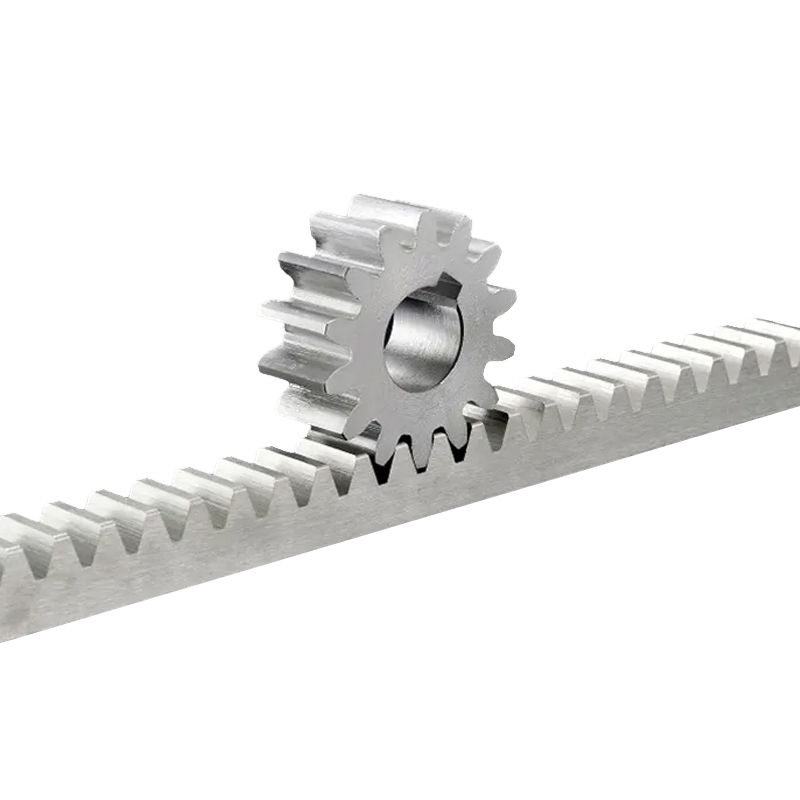No. 200 Gaoxin RD, Shanghua St, Lanxi, Zhejiang, P. R China
The Smooth Surface High Precision Rack Pinion Gear is a high-performan...
See Details
The smooth operation of sliding doors and windows depends largely on one small but essential component—the sliding wheel. Although it may seem like a minor part, the sliding wheel plays a crucial role in ensuring ease of movement, noise reduction, and long-term durability. For both manufacturers and users, understanding what defines a high-quality sliding wheel can help improve product reliability and customer satisfaction.
Material selection is a major factor in determining the quality of a sliding wheel. These components are often made from materials such as nylon, steel, or zinc alloy. Each material brings its own set of characteristics. Nylon is popular for its quiet movement and corrosion resistance, making it suitable for indoor environments. Steel wheels offer higher strength and are more suitable for heavier doors and windows. Zinc alloy versions strike a balance between strength and smooth operation. The choice of material must match the weight of the door or window and the environmental conditions where it will be installed.
Precision in manufacturing also affects how well a sliding wheel functions. A well-constructed wheel should rotate smoothly on its bearing without wobble or resistance. If the wheel is not aligned properly or the bearing is loose, users may experience dragging, jumping, or uneven wear. Consistent tolerances and quality control during production help ensure that each sliding wheel performs reliably and fits securely into the track system. Poorly manufactured wheels can cause early failure, requiring frequent replacements and causing user frustration.
The bearing is another essential component within a sliding wheel. Ball bearings are commonly used to reduce friction and allow for smooth movement under load. High-quality bearings are typically sealed to prevent dust and moisture from entering, which can otherwise cause rust or reduce performance over time. When bearings remain clean and lubricated, the sliding wheel can operate more quietly and with less effort. For exterior installations or humid environments, corrosion-resistant bearings are especially important to maintain long-term function.
Load capacity is a practical consideration when choosing a sliding wheel for specific doors and windows. A high-quality sliding wheel should be rated to support the weight of the moving structure without flattening or wearing out quickly. Underrated wheels may function well but can degrade over time, especially in areas with frequent use. Manufacturers typically provide load ratings, and matching the right wheel to the application ensures smoother operation and fewer mechanical issues.
Noise and vibration control are also indicators of a well-designed sliding wheel. In residential or commercial settings, quiet performance is often valued. A properly fitted and balanced sliding wheel will reduce rattling or squeaking sounds. In some cases, dual-wheel or rubber-coated designs are used to absorb shock and minimize vibration. These features enhance comfort and usability, especially in high-traffic areas or spaces requiring a quieter environment.
Compatibility with the door or window track system is essential. A high-quality sliding wheel should be designed to fit specific track dimensions and profiles. Misalignment between the wheel and track can cause friction, derailment, or damage to both the track and the door or window. Some wheels are adjustable to accommodate minor variations, while others are fixed in place. Ensuring proper alignment and fit during installation is just as important as the quality of the wheel itself.
A high-quality sliding wheel for doors and windows is defined by the right combination of material, manufacturing precision, durable bearings, adequate load support, noise control, and track compatibility. These factors work together to ensure smooth, reliable, and long-lasting performance. Choosing the correct sliding wheel can greatly enhance the overall experience of using a sliding door or window and reduce the need for ongoing maintenance or replacement.